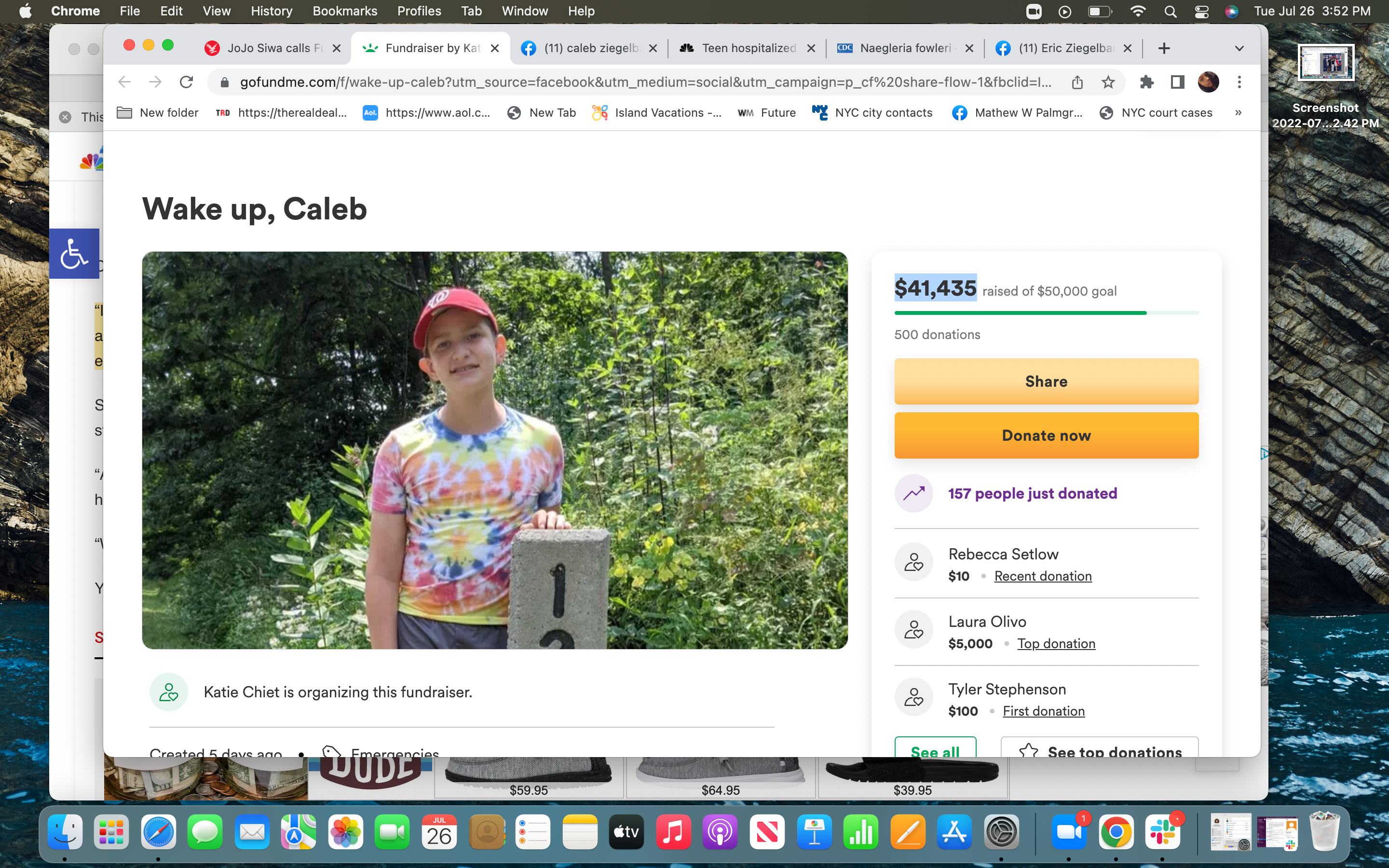Teen fighting for his life after contracting brain-eating amoeba at Florida beach
Only 25 per cent of those infected survive the lethal Naegleria Fowleri amoeba
Your support helps us to tell the story
From reproductive rights to climate change to Big Tech, The Independent is on the ground when the story is developing. Whether it's investigating the financials of Elon Musk's pro-Trump PAC or producing our latest documentary, 'The A Word', which shines a light on the American women fighting for reproductive rights, we know how important it is to parse out the facts from the messaging.
At such a critical moment in US history, we need reporters on the ground. Your donation allows us to keep sending journalists to speak to both sides of the story.
The Independent is trusted by Americans across the entire political spectrum. And unlike many other quality news outlets, we choose not to lock Americans out of our reporting and analysis with paywalls. We believe quality journalism should be available to everyone, paid for by those who can afford it.
Your support makes all the difference.A Florida teenager is fighting for his life after contracting a “brain-eating” bacteria during a trip to the beach.
Caleb Ziegelbauer, 13, has spent nearly two weeks in the ICU at the Golisano Children’s Hospital of Southwest Florida in Fort Myers, NBC reported on Tuesday.
Doctors believe Caleb contracted Naegleria Fowleri, commonly known as the brain-eating bacteria, when he was visiting Port Charlotte beaches with his family on 1 July.
Caleb only began displaying symptoms several days afterwards. On 6 July, he volunteered at the local library and returned home with a headache, close relatives shared on Facebook last week.
The next day, the athletic teenager began feeling lethargic and had a high fever and neck pain. Caleb was rushed to the ER when his symptoms persisted and he was initially diagnosed with meningitis due to the unexplainable swelling in his brain.
Doctors were eventually able to link the brain swelling to his visit to the beach days prior, and Caleb was diagnosed with the dangerous bacteria, which only has a 25 per cent chance of survival.
Although he has made some progress and is now breathing on his own, the future is uncertain for Caleb, who is described as a smart, kind, compassionate, and loving child by his family.
“It’s very lonely and isolating to walk this path because we don’t know where we are on any kind of timeline. It’s day 17 and Caleb is still breathing on his own. Are we in the clear? Are we on the path to healing? Are we waiting for something else to happen,” Katie Chiet, Caleb’s aunt, told NBC.

A GoFundMe organised by Ms Chiet has raised more than $40,000 to cover Caleb’s medical expenses.
Ms Chiet said that Caleb is in and out of consciousness and that although he still has an uphill battle, his family trusts he will be able to recover.
“He’s just the kindest soul but he’s so strong. He’s so strong. Like the fighting on the outside, that’s what we’re doing,” Elizabeth Ziegelbaur told NBC about her nephew. “He is fighting his little heart out on the inside.”
“A lot of times people don’t get to the hospital quickly enough,” Ms Chiet also told the network. “We’re hoping that we did.”

Caleb was briefly intubated and is receiving CDC protocol treatment for Naegleria Fowleri, which includes sedation to allow the brain to rest, and respiratory therapy.
According to the CDC, the lethal bacteria live in soil and warm fresh water, and the chances of getting infected increase during the summer as temperatures rise.
Only three people get infected with the bacteria in the US every year, but the cases are often fatal. Infection is preventable by using nose plugs while swimming in non-chlorinated water.



Join our commenting forum
Join thought-provoking conversations, follow other Independent readers and see their replies
0Comments